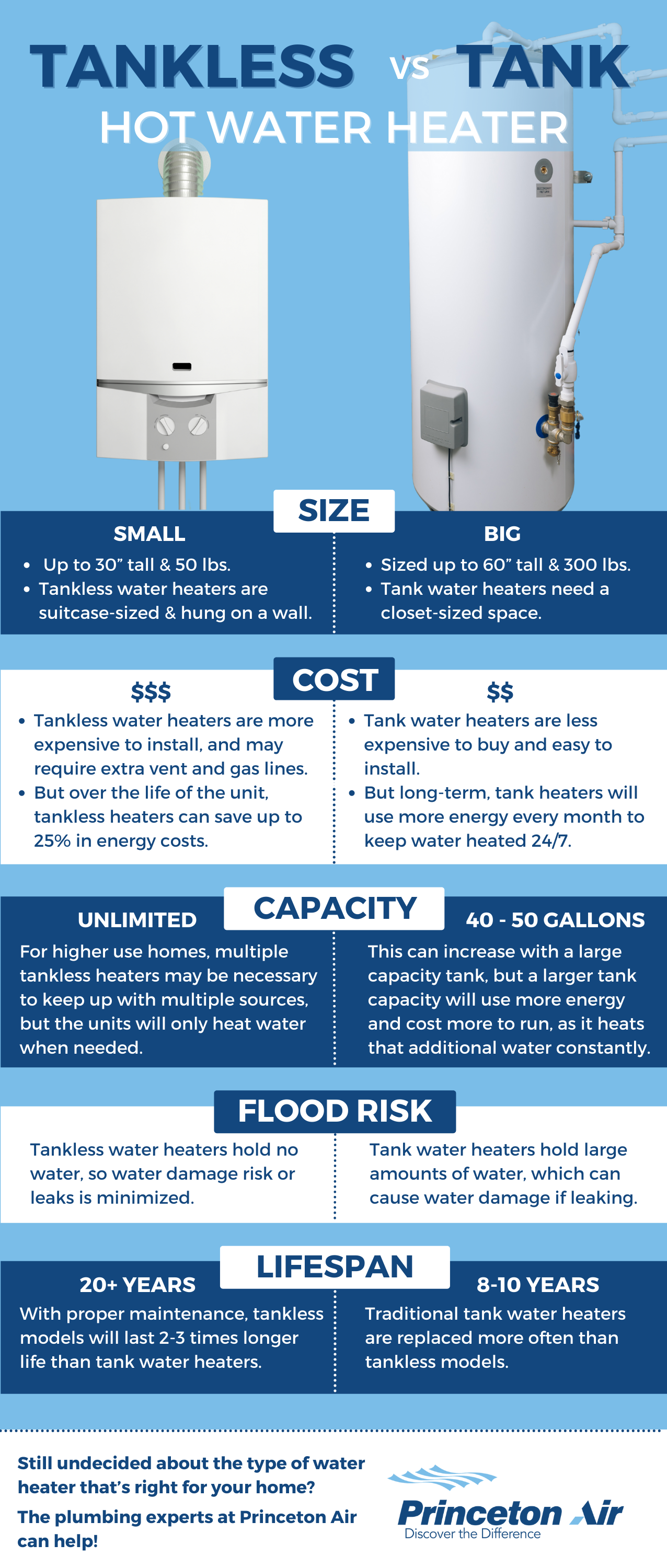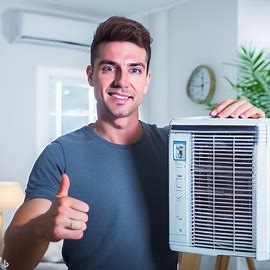Running a dehumidifier 24/7 can cost around $30 to $50 per month in electricity fees. However, the precise cost depends on the dehumidifier’s wattage and your electricity rates.
Maintaining optimal indoor humidity levels is crucial for your comfort and health. Dehumidifiers can help control moisture in your home, preventing mold growth and enhancing air quality. However, running a dehumidifier continuously can lead to increased electricity expenses. Understanding the cost implications of running a dehumidifier round-the-clock is essential for budget-conscious homeowners.
By delving into the factors that influence dehumidifier electricity consumption and associated costs, you can make informed decisions to strike a balance between comfort and savings. Let’s explore the actual expenses involved in running a dehumidifier consistently to help you manage your energy consumption efficiently.


Credit: www.amazon.com
- Understanding The Cost Of Running A Dehumidifier
- Calculating Dehumidifier Running Costs
- Tips For Cost-efficient Dehumidifier Use
- Comparing Dehumidifier Costs With Air Conditioning
- Conclusion: Budgeting For Dehumidifier Operation
- Frequently Asked Questions For How Much Does It Cost To Run A Dehumidifier 247
- Conclusion
Understanding The Cost Of Running A Dehumidifier
Running a dehumidifier 24/7 can have an impact on your electricity bills. It is essential to understand the factors affecting energy consumption and its direct impact on your finances.
Factors Affecting Energy Consumption
- Dehumidifier capacity and size
- Room temperature and humidity levels
- Usage patterns and frequency of operation
- Energy efficiency rating of the dehumidifier
Impact On Electric Bills
Running a dehumidifier constantly can significantly increase your monthly electricity expenses. On average, a dehumidifier operating 24/7 can add an extra amount to your bill each month. It’s crucial to factor in these additional costs when planning to run a dehumidifier continuously.

Credit: www.waychoffsac.com
Calculating Dehumidifier Running Costs
Calculating Dehumidifier Running Costs:
Daily Electricity Consumption
When running a dehumidifier 24/7, the daily electricity consumption varies based on the model.
Monthly Electricity Costs
The monthly electricity costs of running a dehumidifier continuously can add up significantly.
Tips For Cost-efficient Dehumidifier Use
When it comes to running a dehumidifier 24/7, it’s essential to consider the associated energy costs. However, by implementing certain strategies, you can ensure that running your dehumidifier continuously remains cost-efficient. There are several key factors to consider, including selecting an energy-efficient dehumidifier and optimizing its usage patterns. By making informed choices and adjustments, you can effectively manage the running costs of your dehumidifier without compromising on its performance.
Choosing An Energy-efficient Dehumidifier
When selecting a dehumidifier, it’s important to prioritize energy efficiency. Look for models with an Energy Star certification, as these are designed to consume less power without sacrificing performance. Consider the size of your space, as choosing the right capacity for your dehumidifier can also contribute to cost efficiency. It should be in line with the space it needs to cover so that it’s not overworking and consuming excessive electricity. Don’t forget to check the unit’s energy efficiency ratio (EER) as it indicates how much energy is effectively utilized for dehumidification.
Optimizing Usage Patterns
Optimizing your usage patterns can significantly impact the cost of running your dehumidifier. Using a timer to operate your unit during off-peak hours can help reduce energy consumption. Additionally, ensuring proper maintenance, such as regularly cleaning the filters and coils, can improve the efficiency of the dehumidifier, subsequently leading to reduced energy costs. Always keep the space well-ventilated to help the dehumidifier work more efficiently. Finally, be strategic with the placement of your unit, ensuring it’s away from walls and furniture to allow for adequate airflow and optimal performance.

Credit: www.carpetcleaningforce.co.nz
Comparing Dehumidifier Costs With Air Conditioning
Running a dehumidifier 24/7 can significantly impact your energy bill. However, compared to air conditioning, dehumidifiers are generally more energy-efficient, resulting in lower long-term costs. Considering your specific needs and budget, it’s essential to weigh the initial investment and ongoing operational expenses of both devices.
When it comes to controlling the humidity levels in your home, two common options are dehumidifiers and air conditioning. Both can effectively reduce humidity, but they differ in terms of energy consumption and cost. In this article, we will evaluate the energy consumption of dehumidifiers compared to air conditioning and provide a financial comparison to help you make an informed decision.
Energy Consumption Evaluation
To understand the energy consumption of dehumidifiers and air conditioning, it is important to consider their differences in functionality. Dehumidifiers are designed specifically to remove excess moisture from the air, while air conditioning systems focus on both temperature and humidity control.
As a result, dehumidifiers generally consume less energy than air conditioning units when both are running for the same duration. This is because dehumidifiers do not need to cool the air as extensively as air conditioning systems. However, the energy consumption of dehumidifiers can vary depending on factors such as the size of the unit, its energy efficiency rating, and the ambient humidity level.
To get a better idea of the energy consumption of different dehumidifier models, you can refer to their wattage ratings. This information is typically provided by manufacturers and can help you estimate the electricity cost of running a dehumidifier 24/7.
Financial Comparison
To determine the financial aspects of running a dehumidifier compared to air conditioning, you need to consider the energy consumption and the associated electricity rates. In general, dehumidifiers can be more cost-effective than air conditioning when it comes to controlling indoor humidity.
Here is a comparison of the average energy consumption and potential cost of running a dehumidifier 24/7 compared to air conditioning:
| Appliance | Average Energy Consumption | Cost per Month |
|---|---|---|
| Dehumidifier | 250-500 watts | Estimated cost based on local electricity rates |
| Air Conditioning | 1,000-2,500 watts | Estimated cost based on local electricity rates |
The cost per month will vary depending on your local electricity rates and the specific wattage of your appliance.
Based on this comparison, it is evident that dehumidifiers can be a more energy-efficient and cost-effective solution for maintaining optimal humidity levels in your home. However, it is important to note that if you also require significant cooling, air conditioning may be necessary.
In conclusion, when comparing dehumidifier costs with air conditioning, it is important to consider the energy consumption and financial implications. While dehumidifiers consume less energy and can be more cost-effective for humidity control, air conditioning may be necessary if you require both temperature and humidity management. Assessing your specific needs and understanding the energy consumption of different appliances will help you make an informed decision.
Conclusion: Budgeting For Dehumidifier Operation
To budget for 24/7 dehumidifier operation, consider the estimated daily electricity consumption and multiply it by the cost per kilowatt-hour. Monitoring usage and adjusting settings can help manage operating expenses efficiently. Regular maintenance can also optimize energy efficiency and potentially reduce overall running costs.
Running a dehumidifier 24/7 can significantly impact your electricity bill. It’s important to consider the long-term cost implications and find a balance between comfort and expense. In this section, we will explore the factors to consider when budgeting for dehumidifier operation.
Long-term Cost Considerations
When evaluating the cost of running a dehumidifier 24/7, it’s crucial to consider both the initial investment and the ongoing operational expenses. While the upfront cost of purchasing a dehumidifier may vary depending on the brand and capacity, the long-term cost considerations primarily revolve around energy consumption.
The energy consumption of a dehumidifier is typically measured in kilowatt-hours (kWh). To estimate the cost, you can check your electricity bill for the current rate per kWh charged by your utility provider. Multiply this rate by the energy consumption of the dehumidifier to get the approximate cost per hour.
It’s worth noting that dehumidifiers with energy-saving features, such as adjustable humidity settings, programmable timers, and automatic shutoff when the desired humidity level is reached, can help reduce long-term costs by optimizing energy usage.
Balancing Comfort And Expense
While it’s important to maintain comfortable humidity levels in your home or office, running a dehumidifier continuously can lead to higher energy costs. To strike a balance between comfort and expense, consider the following tips:
- Set the dehumidifier to a target humidity level that aligns with your comfort needs and energy-saving goals. For most environments, a relative humidity range of 40-60% is ideal.
- Use the dehumidifier in specific areas where excess moisture is a problem instead of running it throughout the entire space.
- Take advantage of programmable timers to schedule the dehumidifier operation during the periods of the day when humidity levels are higher.
- Regularly maintain the dehumidifier by cleaning or replacing the filters, as clogged filters can reduce the unit’s efficiency and increase energy consumption.
- Consider investing in a dehumidifier with energy-efficient certifications, such as ENERGY STAR, which ensures the unit meets strict energy-saving standards.
By following these guidelines, you can optimize the comfort in your living or working environment while keeping the operational costs of your dehumidifier manageable.
In conclusion, budgeting for dehumidifier operation involves considering both the initial and long-term costs. By finding the right balance between comfort and expense, you can ensure efficient and cost-effective dehumidifier usage.
Frequently Asked Questions For How Much Does It Cost To Run A Dehumidifier 247
How Much Does It Cost To Run A Dehumidifier 24 7?
Running a dehumidifier 24/7 can cost around $30 to $50 per month in electricity bills.
Is It Bad To Run Dehumidifier 24 7?
Running a dehumidifier 24/7 is not bad, but it may increase energy costs. Regularly maintain and clean it to optimize efficiency.
Is It Expensive To Run A Dehumidifier All The Time?
Running a dehumidifier all the time may lead to higher electricity costs. However, it can save you money in the long run by preventing mold growth and improving energy efficiency. The exact cost depends on factors like the size and energy efficiency of the dehumidifier.
Does A Dehumidifier Run Up Your Electric Bill?
Using an electric dehumidifier will increase your electric bill, but it can also save you money in the long run by preventing mold growth and improving energy efficiency in your HVAC system.
Q1: How Much Does It Cost To Run A Dehumidifier 24/7?
A1: Running a dehumidifier 24/7 can cost around $20 to $50 per month, depending on the size and energy efficiency of the unit.
Conclusion
After considering the different factors affecting the cost of running a dehumidifier 24/7, it’s clear that energy consumption and electricity costs are significant considerations. However, the long-term benefits in terms of improved air quality and potential energy savings make the investment worthwhile.
To minimize operational costs, choosing an energy-efficient dehumidifier is crucial.